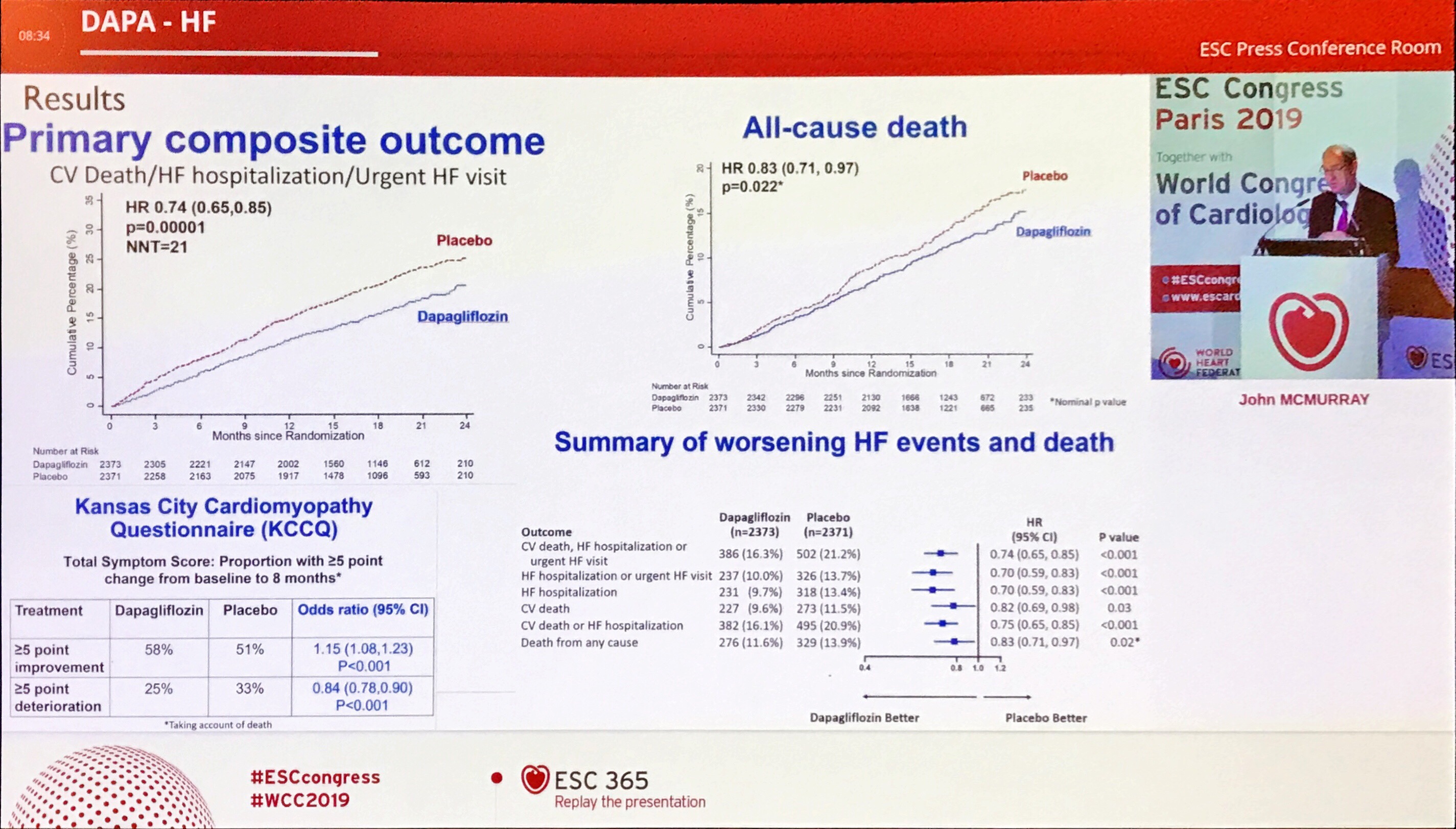The DAPA-HF study findings were presented today by Dr. John McMurray at the ESC Congress in Paris.
DAPA-HF is an international, multi-centre, parallel-group, randomised, double-blind trial in patients with heart failure and reduced ejection fraction (LVEF = 40%), with and without type-2 diabetes, designed to evaluate the effect of dapagliflozin, an SGLT2 inhibitor, compared with placebo. The DAPA-HF trial investigated the treatment of heart failure with dapagliflozin on top of standard of care, including medicines such as ACE inhibitors, angiotensin II receptor blockers, beta-blockers, mineralocorticoid-receptor antagonists, and neprilysin inhibitors.
As per the complete findings presented today at #ESCCongress, there was a 26% reduction in the primary endpoint (cardiovascular death, hospitalisation or an urgent heart failure visit) in patients who received dapagliflozin compared to patients who received standard care alone. Results were identical in both diabetics and non-diabetics.

In a short interview with ESC TV, Dr. John McMurray summarised the results of the trial. He explained that it was already known that SGLLT2 inhibitors could prevent the development of heart failure in patients with diabetes. But in the DAPA-HF trial, the researchers wanted to test whether SGLT2 inhibitors could be used as a treatment for heart failure not just in patients with type 2 diabetes but in all patients with heart failure and reduced ejection fraction. 4744 were randomised to either placebo or dapagliflozin 10mg once a day. Patients were followed up for a period of 18.2 months. The primary composite outcome for the study was time to a worsening heart failure event or cardiovascular death.
According to Dr. McMurray, the primary endpoint was reduced by 26% by dapagliflozin. That was a highly statistically significant benefit. Not only that, but both of those components of the primary endpoint - worsening heart failure and cardiovascular deaths were each reduced significantly. Worsening heart failure was reduced by 30% while cardiovascular death was reduced by 18%. There was even a 17% reduction in all-cause mortality that was nominally statistically significant. Other endpoints including symptoms and quality of life were also improved by dapagliflozin.
The most important finding of all was that these benefits were seen even in patients without diabetes, points out Dr. McMurray. Overall, these findings clearly show that SGLT2 inhibitors are a completely novel way of treating heart failure with reduced ejection fraction. Dapagliflozin is a drug that gives additional benefits, over and above all the other conventional treatments that are currently used.
Source: Dr. John McMurray Presentation @ESC Congress 2019/ Interview ESC TV
Slide Credit: Dr. John McMurray
Image Credit: ESC
Latest Articles
#ESCcongress, ESC Congress 2019, dapagliflozin, #DAPA-HF
The DAPA-HF study findings were presented today at the ESC Congress in Paris.










